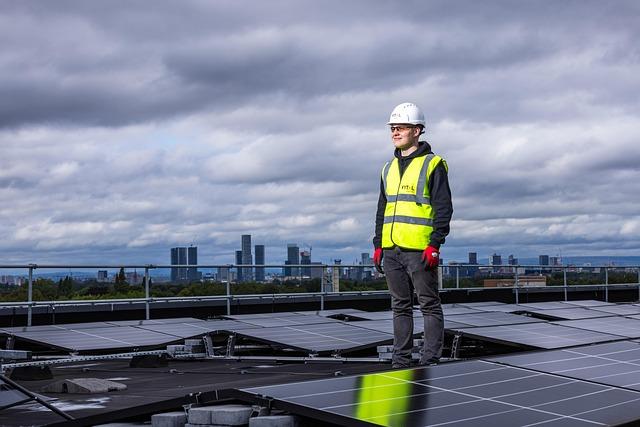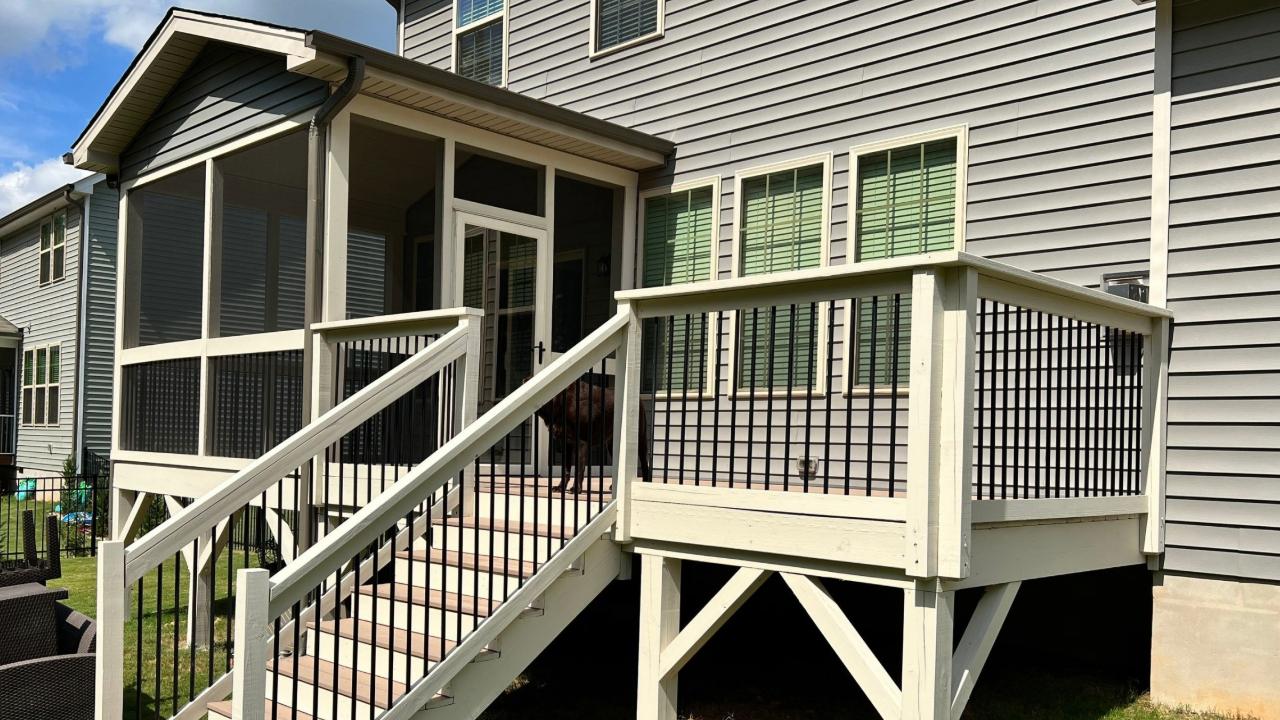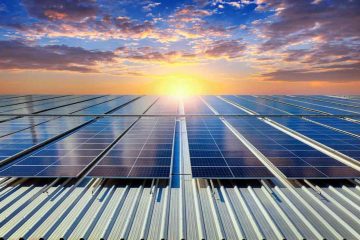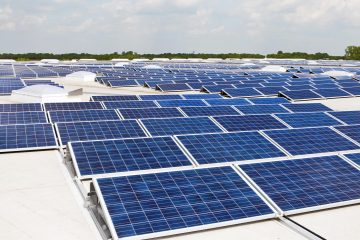Table of Contents
- Understanding the Importance of Solar Panel Cleaning for Optimal Performance
- Common Contaminants That Affect Solar Panel Efficiency
- Best Practices for Cleaning Solar Panels Safely and Effectively
- DIY Solar Panel Cleaning vs. Professional Services: Weighing the Options
- When to Schedule Regular Maintenance for Your Solar Energy System
- Q&A
- Closing Remarks


Understanding the Importance of Solar Panel Cleaning for Optimal Performance
Solar panels are a significant investment for homeowners and businesses alike, providing a sustainable energy source that reduces electricity costs and reliance on fossil fuels. However, their performance can be severely impacted by dirt, debris, and other environmental factors. Over time, accumulated grime can block sunlight, leading to diminished energy output. Regular maintenance, specifically cleaning, is essential to ensure that solar panels operate at their maximum efficiency. By keeping your panels clean, you can secure optimal performance and, ultimately, the best return on your investment.
When it comes to effective cleaning, it’s important to follow best practices to avoid damaging the panels. Here are some tips to consider:
- Timing is Key: Clean your panels early in the morning or late in the afternoon to avoid direct sunlight, which can lead to streaks and water spots.
- Use the Right Tools: Opt for soft brushes or squeegees with non-abrasive pads to gently remove dirt without scratching the surface.
- Water Quality Matters: Use distilled water for cleaning if possible, as tap water can leave mineral deposits.
Additionally, consider the benefits of professional cleaning services. Although a DIY approach can be cost-effective, professionals often have access to specialized equipment and use safe cleaning agents that enhance the longevity and efficiency of your solar panels. Here’s a comparison of DIY vs. professional cleaning:
| Aspect | DIY Cleaning | Professional Cleaning |
|---|---|---|
| Cost | Lower initial cost | Higher initial cost |
| Time | More time-consuming | Quick and efficient |
| Expertise | No professional knowledge | Trained professionals |


Common Contaminants That Affect Solar Panel Efficiency
Maintaining optimal performance in solar panels is crucial for maximizing energy efficiency, and one of the significant factors impacting this efficiency is contamination. Over time, various substances can accumulate on the panels’ surfaces, obstructing sunlight and hampering energy production. Some common contaminants include:
- Dust and Dirt: In arid or windy regions, dust collects rapidly on panels, creating a layer that blocks sunlight.
- Bird Droppings: This natural occurrence can be problematic, as it creates dark stains that not only block light but can lead to corrosion over time.
- Pollen and Tree Sap: In areas with abundant vegetation, pollen can create a sticky residue, while tree sap hardens and becomes more difficult to remove.
Weather can also play a significant role in contaminating solar panels. Rain may wash away some minor debris, but it can also bring with it acid rain, which introduces harmful acids that can etch the panel’s surface if not addressed promptly. Additionally, environmental conditions lead to the accumulation of:
- Mold and Algae: Particularly in humid climates, organic growth can form on panel surfaces, further blocking sunlight.
- Salt Residue: For coastal installations, salt from seawater can accumulate and corrode components.
Addressing these issues requires regular cleaning and maintenance to ensure the panels remain efficient. A common method is to perform a monthly inspection to gauge the level of buildup. The following table outlines the recommended cleaning frequency based on the type of contaminant and environmental factors:
| Contaminant Type | Recommended Cleaning Frequency |
|---|---|
| Dust and Dirt | Every 4-6 weeks |
| Bird Droppings | Immediate removal |
| Pollen and Tree Sap | Every 6-8 weeks |
| Mold and Algae | Every 2-3 months |
| Salt Residue | Monthly |
Best Practices for Cleaning Solar Panels Safely and Effectively
Cleaning solar panels is essential for maintaining their efficiency and longevity. To ensure that you do it in a safe and effective manner, consider these best practices. First, always check the manufacturer’s guidelines. They often provide specific instructions that cater to their panel types, helping to prevent any damage during cleaning.
When it comes to materials, use soft brushes or sponges to avoid scratching the surface. Avoid harsh chemicals that can degrade the panels; instead, opt for a gentle soap solution mixed with water. Here’s a straightforward list to follow:
- Use distilled water for rinsing.
- Apply cleaning solution lightly.
- Use a squeegee to remove excess water.
- Clean during cooler hours to prevent streaking.
To enhance your cleaning routine, consider establishing a schedule. Depending on your environment, the frequency may vary. For example, if you live in an area with heavy dust or bird activity, you might need to clean them monthly. Here’s a simple table outlining suggested cleaning frequencies based on different conditions:
| Condition | Recommended Cleaning Frequency |
|---|---|
| Low Dust/No Birds | Every 6 months |
| Moderate Dust/Occasional Birds | Every 3 months |
| High Dust/Frequent Birds | Monthly |


DIY Solar Panel Cleaning vs. Professional Services: Weighing the Options
When it comes to keeping your solar panels operating at peak efficiency, cleaning is a crucial aspect that shouldn’t be overlooked. Homeowners often find themselves at a crossroads between choosing to clean their solar panels themselves or hiring a professional service. Both options come with their own sets of benefits and challenges, making it essential to weigh them carefully before deciding.
Taking the DIY approach allows solar panel owners a sense of control and often results in cost savings. By cleaning panels periodically, homeowners can eliminate dirt and debris that may hinder energy production. Here are some aspects to consider when opting for the DIY method:
- Cost-Effective: Save money by not paying for professional services.
- Flexible Timing: Clean when it’s convenient for you.
- Personal Satisfaction: Enjoy the sense of accomplishment from maintaining your equipment.
On the other hand, hiring a professional cleaning service brings expertise and specialized equipment that can enhance the cleaning process. Professional services typically guarantee a thorough job with minimal risk to your panels. Below are some notable advantages:
- Expertise: Trained technicians know the best techniques to clean panels without causing damage.
- Time-Saving: Professionals handle the task efficiently, freeing up your time for other activities.
- Safety: Reduce the risk of injury by avoiding ladder work and handling heavy equipment.
Ultimately, the decision lies in your preferences, budget, and comfort level with performing tasks at height. A quick cost comparison table can help you visualize the financial implications of both options:
| Service | Estimated Cost | Time Required | Skill Level Needed |
|---|---|---|---|
| DIY Cleaning | Low (supplies cost) | 2-4 hours | Basic |
| Professional Service | Moderate | 1-2 hours | None |


When to Schedule Regular Maintenance for Your Solar Energy System
Regular maintenance of your solar energy system is essential for optimal performance and longevity. It’s crucial to establish a maintenance schedule that aligns with the specific needs of your system and environmental factors. Generally, it is recommended to conduct a comprehensive inspection at least once a year, but more frequent checks may be beneficial depending on the conditions where your panels are installed.
Here are some key indicators that might suggest it’s time for maintenance:
- Soiling and Debris: Accumulation of dirt, dust, or debris can decrease efficiency. Areas with heavy pollen or near construction sites may require more frequent cleaning.
- Performance Decline: If you notice a significant drop in energy production, it could be a sign of underlying issues needing immediate attention.
- Weather Events: After severe weather conditions like hailstorms or heavy snow, it’s wise to inspect your panels for damage.
Moreover, developing a maintenance checklist can streamline the process and ensure that no detail is overlooked. Consider using the following table to assist in your regular upkeep:
| Maintenance Task | Frequency |
|---|---|
| Visual Inspection | Monthly |
| Professional Cleaning | Annually |
| Performance Monitoring | Continuous |
| Component Inspection | Bi-annually |
By adhering to a structured maintenance schedule and being proactive about inspections, you’ll not only enhance the performance of your solar energy system but also extend its lifespan. Taking these steps ensures that your investment continues to yield substantial energy savings for years to come.
Q&A
Q&A: Solar Panel Cleaning
Q1: Why is cleaning solar panels important? A: Cleaning solar panels is essential to maintain their efficiency and performance. Dirt, dust, bird droppings, and other debris can accumulate on the panel surface, obstructing sunlight and reducing energy output. Regular cleaning helps ensure that your solar panels operate at their peak, maximizing your investment and extending their lifespan.Q2: How often should solar panels be cleaned? A: The frequency of cleaning depends on various factors, including your location, climate, and the surrounding environment. Typically, a good rule of thumb is to clean your solar panels every six months. However, if you live in an area with high dust levels, near farms, or have trees that shed leaves or pollen, you might need to clean them more often.
Q3: What is the best method for cleaning solar panels? A: The best method involves using gentle and eco-friendly solutions. You can use a soft brush or a sponge along with a bucket of water to scrub the panels lightly. Avoid abrasive materials that could scratch the glass. If needed, a mild soap solution can be used, but make sure to rinse thoroughly with clean water. Always ensure safety first—if your panels are on a roof, consider hiring a professional.
Q4: Can rain effectively clean solar panels? A: While rain can help wash away some dust and debris, it typically doesn’t provide a thorough clean. In many cases, the minerals in rainwater can leave spots or stains, which might still hinder sunlight absorption. So, while rain might assist in keeping panels somewhat clean, it’s not a replacement for regular cleaning.
Q5: Are there any special tools or products designed for solar panel cleaning? A: Yes, there are specialized cleaning kits available that include soft brushes, squeegees, and telescopic poles designed specifically for solar panels. Additionally, there are eco-friendly cleaning solutions formulated to break down grime without damaging the panels. Investing in these tools can make the cleaning process easier and more effective.
Q6: Is it safe to clean solar panels myself? A: Cleaning solar panels can be safe if you take the right precautions. If they are on the roof, use ladders securely and consider a harness for safety. If you are unsure or uncomfortable, hiring a professional cleaning service is highly recommended. They have the expertise and equipment necessary to clean your panels safely and efficiently.
Q7: Can I use a pressure washer on my solar panels? A: No, using a pressure washer is not recommended. The high-pressure water can damage the panels, sealants, or wiring. It’s best to stick to gentler cleaning methods that won’t risk harming the integrity of your solar system.
Q8: What are the signs that my solar panels need cleaning? A: Signs that your solar panels may need a cleaning include a noticeable drop in energy production, visible dirt and debris accumulation, bird droppings, and discoloration on the surface. If you notice any of these indicators, it’s time to schedule a cleaning!
By understanding the importance of solar panel cleaning and following best practices, you can ensure your solar energy system remains efficient and continues to provide clean energy for years to come.




0 Comments